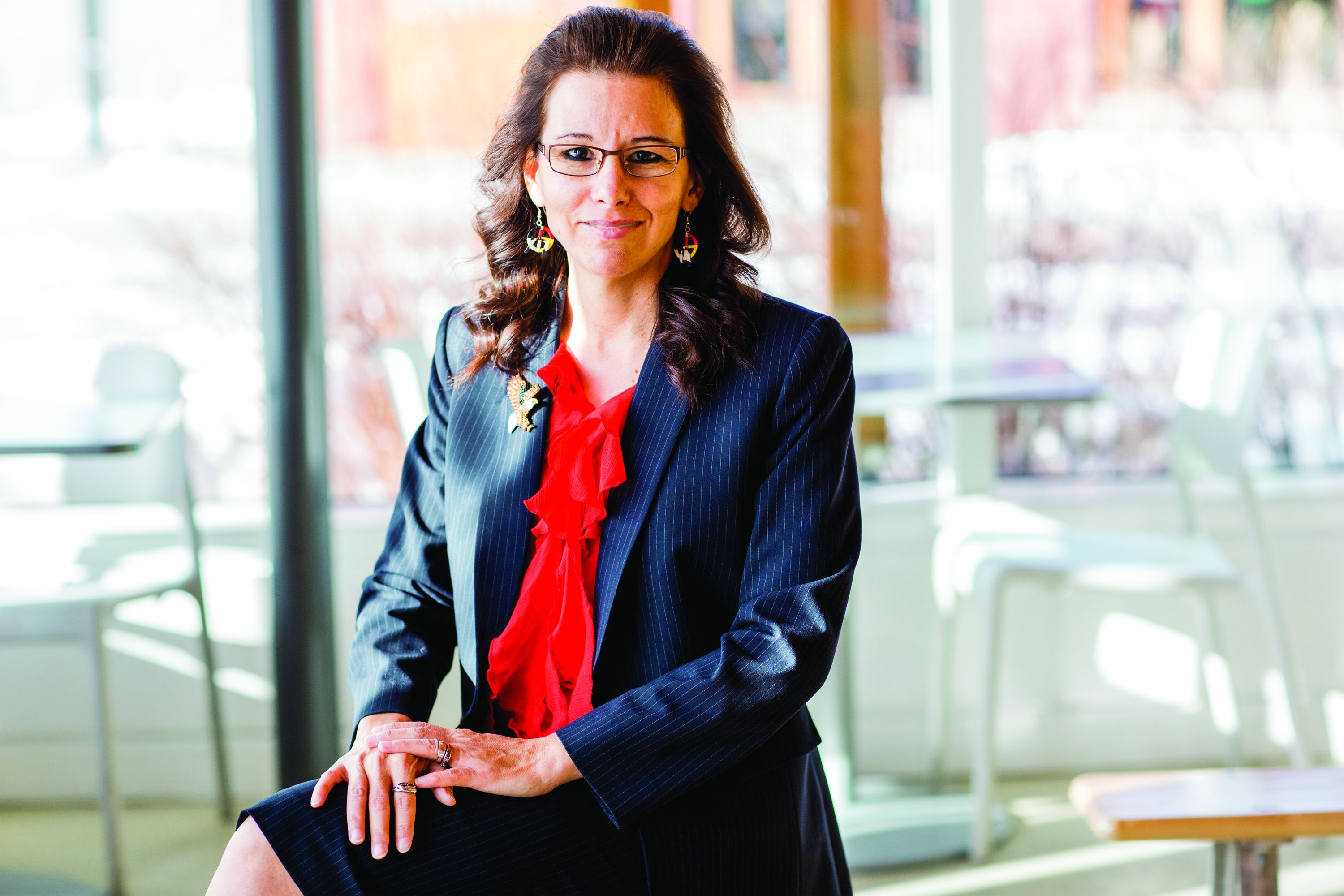
As Lakehead University’s first round of law grads hit the job market this year, it seems they’re coming up against some barriers from the profession.
“We have some firms telling graduates that articling is necessary to be in the hiring pool for that firm,” Angelique EagleWoman, dean of Lakehead’s Bora Laskin Faculty of Law, says, calling it an additional obstacle that’s discouraging for the new grads.
“We also ran into this issue with crown offices and government departments — to be in the hire-back pool, only articling students are eligible, which puts our students at a disadvantage.”
The Integrated Practice Curriculum at Lakehead, approved by the Law Society of Upper Canada in 2013, was in response to a 2007 Carnegie Foundation for the Advancement of Teaching report, “Educating lawyers: Preparation for the profession of law,” which made recommendations for more experiential and skills-based opportunities within legal education.
The IPC, EagleWoman says, is “an example of how that could be done.”
With practice skills “interwoven into every first year course,” a concentration of practice skills in second year, one semester in a placement in third year, summer positions, and a legal clinic at the school, there is no requirement for Lakehead law students to article.
“When they graduate, they go right into their exams and — based on results — they are licensed, called to the bar, and ready to practice,” EagleWoman says.
The placements were rolled out for the first time last year, and the school had 84 placements available for 57 students. The local bar has been enthusiastic about this type of curriculum, EagleWoman says.
EagleWoman recognizes the IPC is new and different, but says it’s also innovative and responsive to the ongoing discussion nationally and internationally on how legal education doesn’t necessarily match with the needs of the legal profession.
“If students, in their legal education, have a majority of doctrinal, philosophical, more abstract-based courses … without any grounding in practical skills, transaction skills, what it means to be a lawyer, then we’re really doing a disservice to those going to law school.”
Law Society of Upper Canada spokeswoman Susan Tonkin says the main goal is to provide the public with competent and professional lawyers, licensed through requirements that are fair and accessible.
The options available to satisfy the experiential requirement of the licensing process enable law students to choose the “most appropriate experiential training path for them.”
But on the flip side of that coin, it’s also up to law firms to decide what’s right for their purposes.
“Needs of law firms may differ, and the experiences they offer to licensing candidates and new lawyers also varies. When hiring, it is for law firms to determine how their needs can best be met and how licensing candidates and new lawyers can have a fulfilling experience,” Tonkin says.
Gina Alexandris, senior program director of Ryerson University’s Law Practice Program, knows the push back EagleWoman is getting only too well.
“In a profession where a lot is based on evidence, it’s interesting how quickly some of our colleagues are prepared to make judgments without actually looking at evidence or looking at information really closely,” she says.
Alexandris’ advice for Lakehead is to act on feedback from all stakeholders and to keep educating people.
“We’re out there constantly speaking to people, letting them know what the program is and what it isn’t, and who the candidates are and who they’re not. It’s a constant challenge but we keep fighting back with excellence in the programming.”
EagleWoman plans to continue meeting with local practitioners, and says the overwhelming response has been very positive from those who have collaborated with the program so far. She is hoping for more understanding of “what the IPC is and what we’re doing here at Lakehead.”
“It’s exciting times in the legal profession. As a profession we continue to improve and put in place better systems. We have to continue to grow and develop with the world around us.”